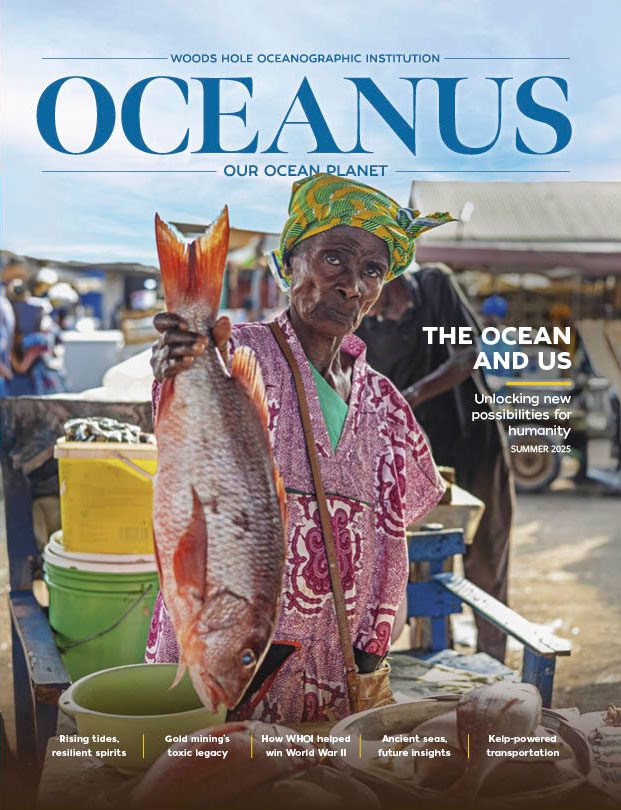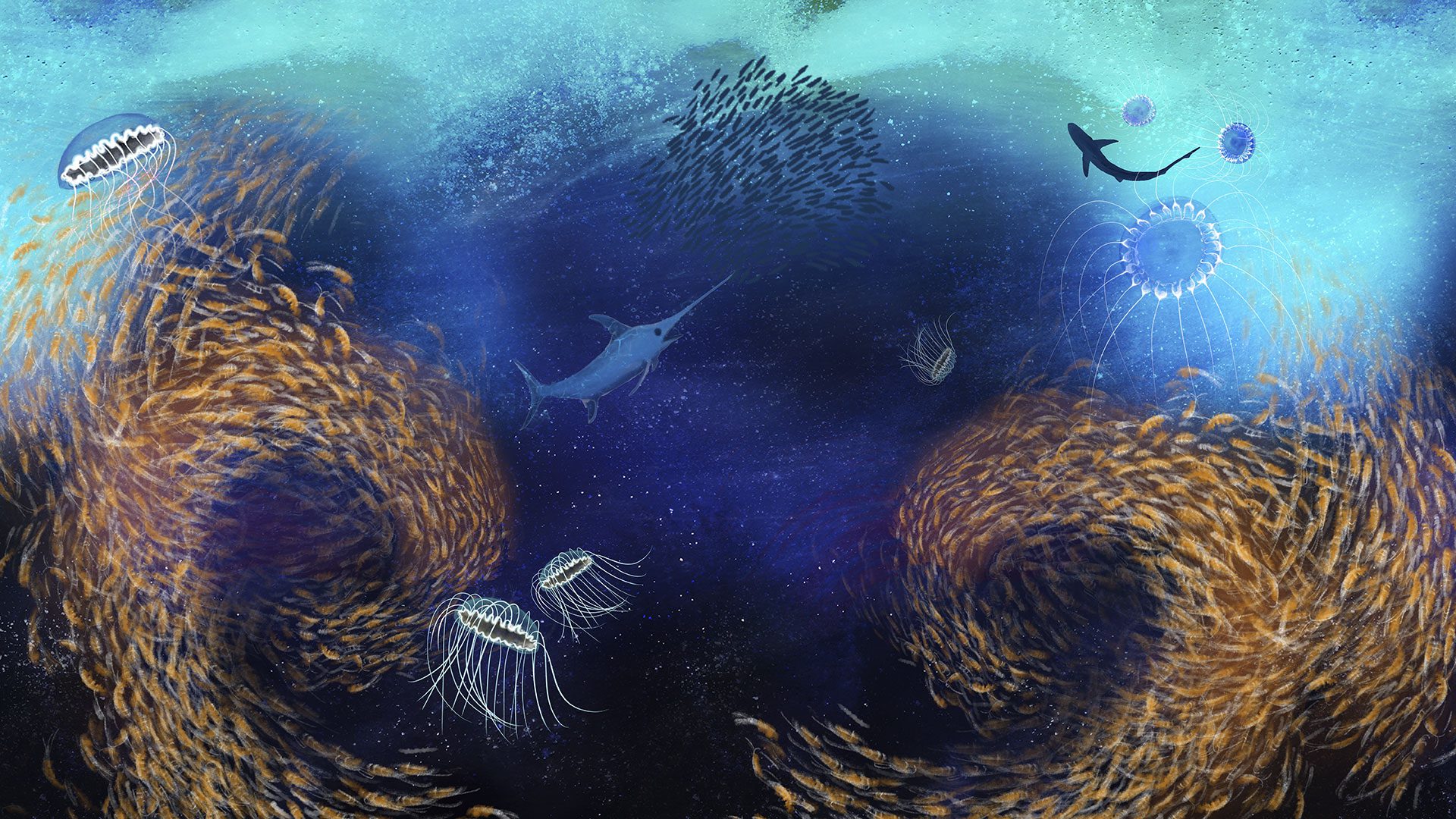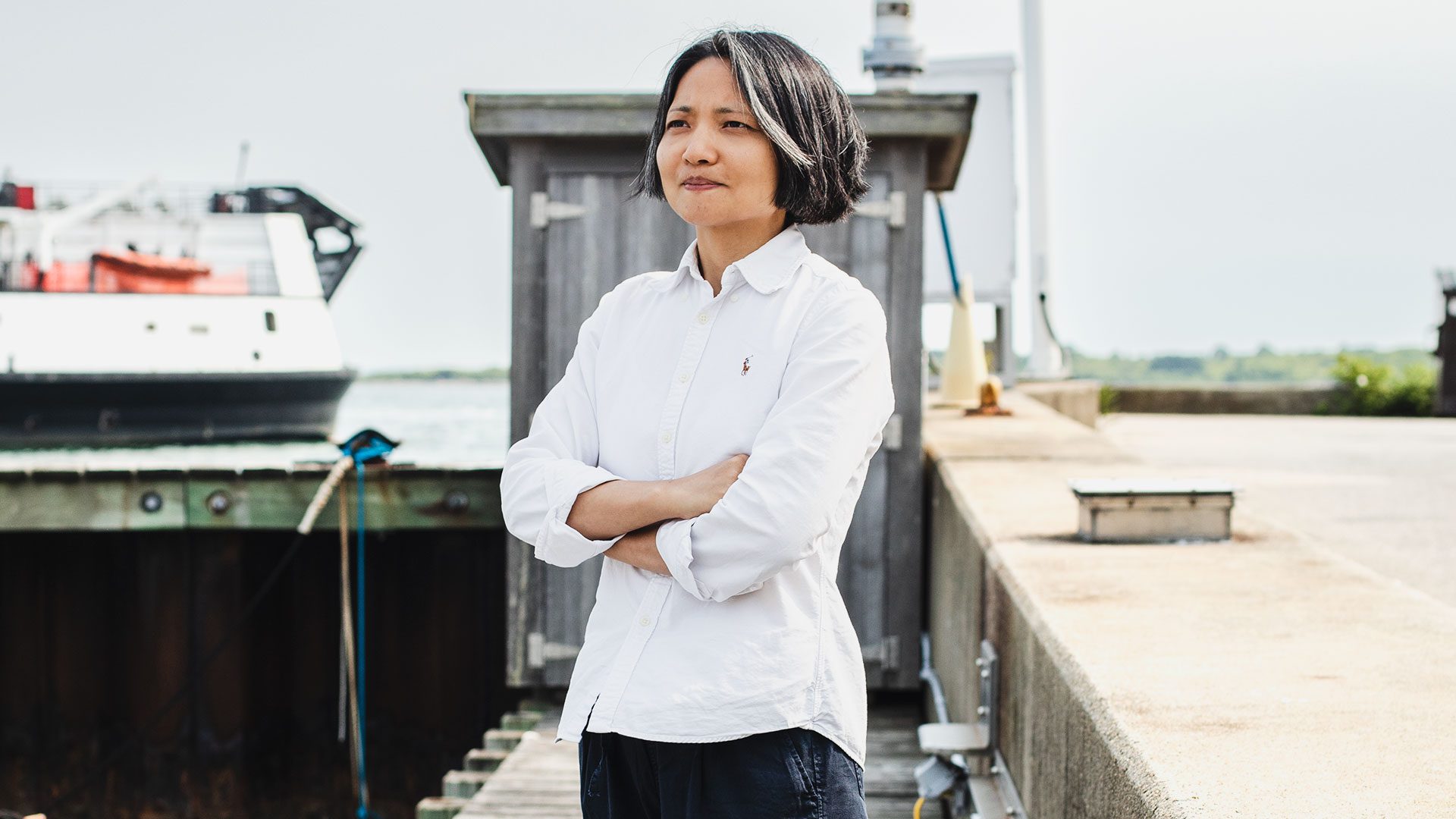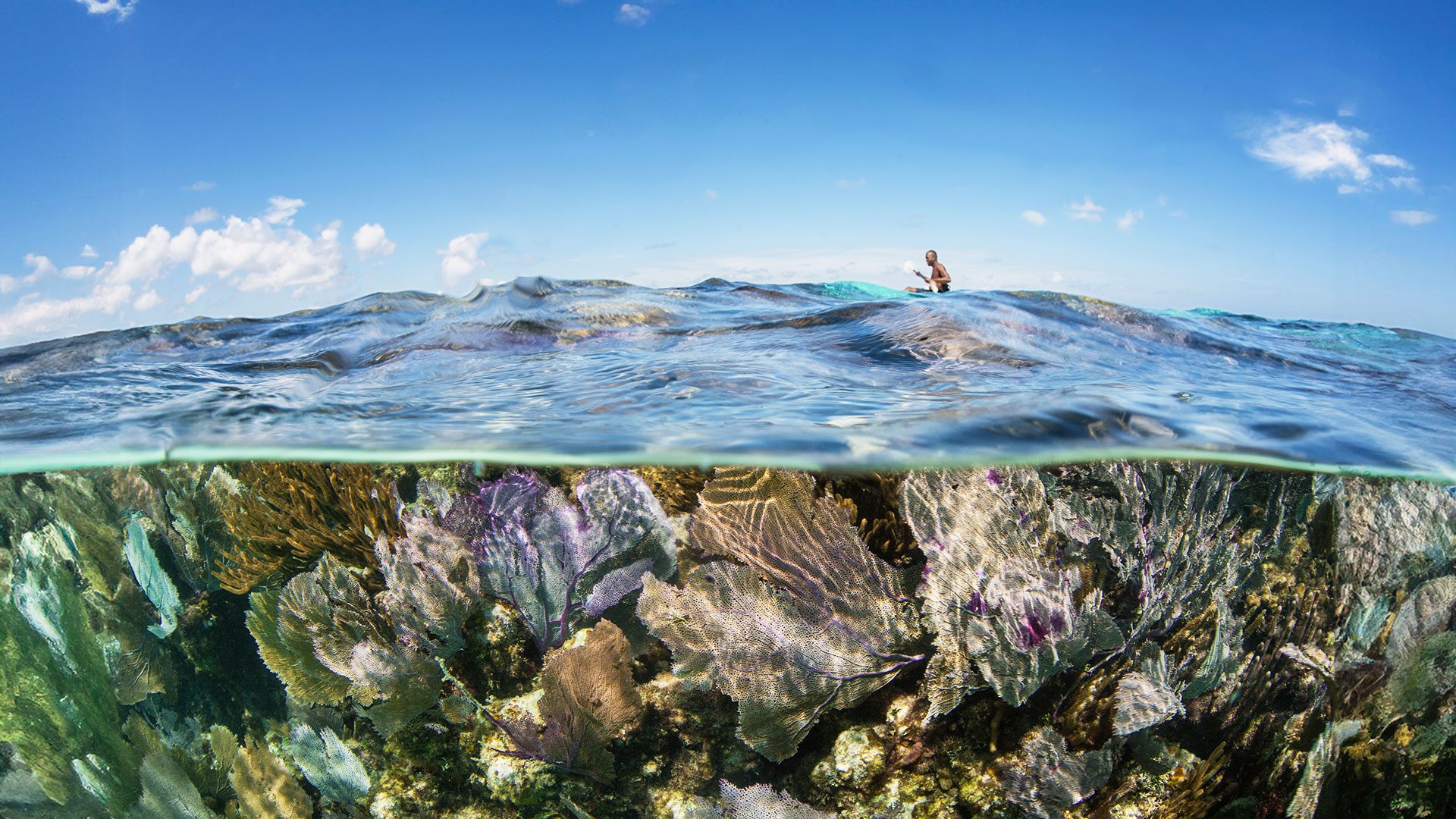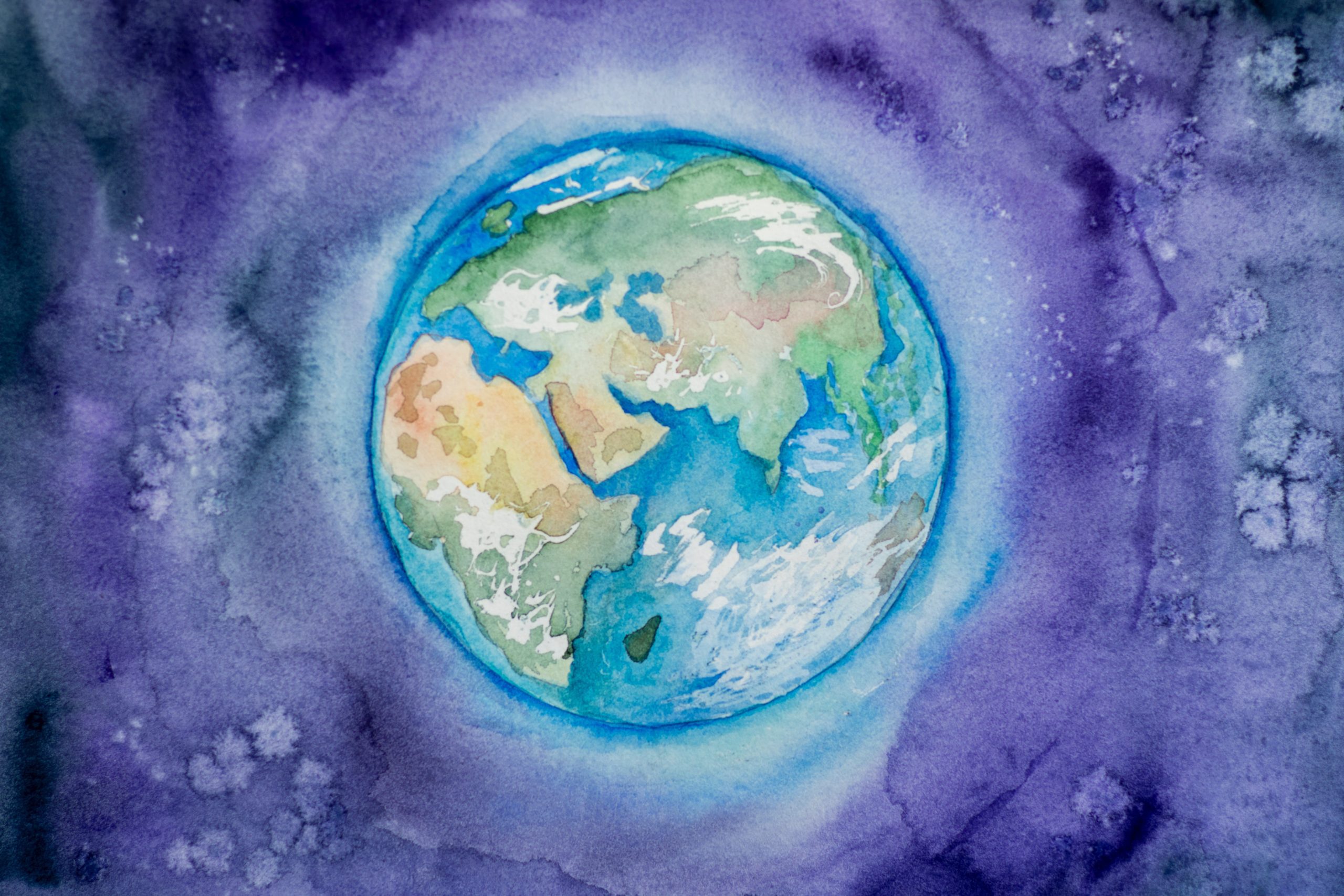
Five ways to make every day Earth Day
What better way to help our ocean planet than reducing our impacts on land? Members of WHOI’s Sustainability Task Force recommend everyday lifestyle tweaks to help you “be green and go blue.”
Estimated reading time: 3 minutes
They say every day is Earth Day, but that means more than cleaning up litter or planting a tree. Long-term sustainability means recognizing that the environment, economy, and society are interconnected– and our personal actions can lead to collective change. So, what better way to help our ocean planet than reducing our impacts on land?
We asked five members of WHOI’s Sustainability Task Force to recommend everyday lifestyle tweaks to help you “be green and go blue.”

Connor Ahearn - Ocean Observatories Initiative (OOI) Engineer
While there's often a lot of focus on recycling, I take particular pleasure in the first of the three R's: reduce. Whether it's in the form of filling an online cart with the intention of never clicking "buy" or cutting out entire aisles from my grocery store runs, I find there's plenty to be gained from wanting–and having–less. Our culture is driven by the desire to consume, and breaking those patterns whenever possible, even in small ways, gives me the opportunity to reflect on the parts of my life that actually sustain me.
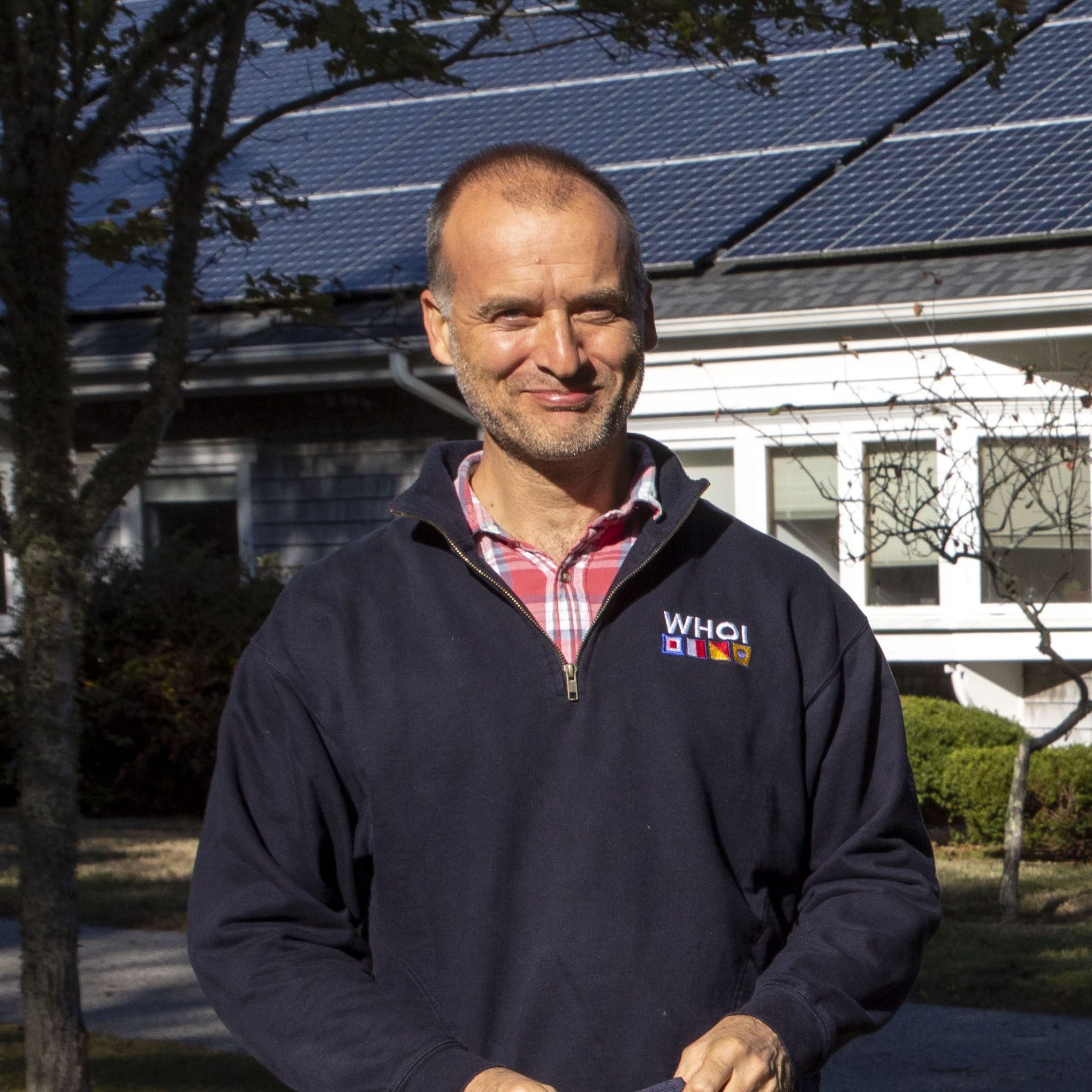
Sébastien Bigorre - Physical Oceanographer
About 5 years ago, I switched from a mostly vegetarian diet to a vegan one, after participating in a New Year's Eve vegan potluck with some friends. That dinner was really what tipped the balance for me because the food was plentiful and delicious, including the best cheese cake I ever had, and there was no feeling of bloating after the feast. Now, that vegan diet aligns with some of my core values, including the ethical treatment of animals, and the sustainable use of resources (e.g. water, carbon). My health has improved, and I enjoy cooking more now because I get to incorporate new plants, recipes, cultural influences, and tips. I have met people who were encouraging and open to plant-based diet. Occasionally though, when working at sea or traveling, I allow myself to not be 100% vegan, and I sometimes do eat a couple of eggs on Sunday morning as a special treat!
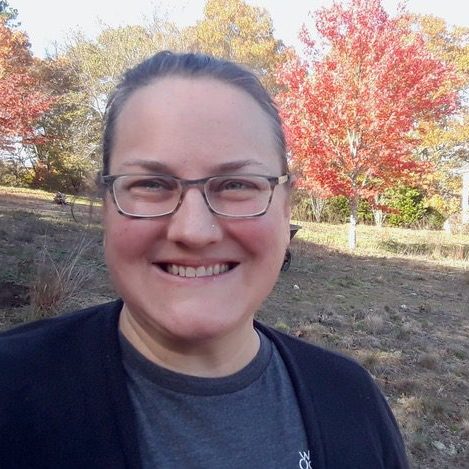
Mai Maheigan - Ocean Carbon & Biogeochemistry Community Engagement Manager
Recently, I've gotten into gardening—the ultimate no-packaging food source. I've enjoyed many months of walking a few steps out my door to pick what is ready for harvest—the homegrown herbs, salads, and vegetables are as fresh as you can get, with zero packaging and zero food miles.
Buying in bulk and even making your own (almond milk, hummus, laundry soap, and other simple cleaning products) instead of purchasing cans and pre-made items can reduce the packaging you bring into your home.
Take one change at a time (bring your bags and water bottle when you go out), then add another (purchase foods and cleaning supplies in bulk or without plastic), then another (start growing your herbs and veggies), and you’ll be well on your way to sustainable habits that you can feel good about.
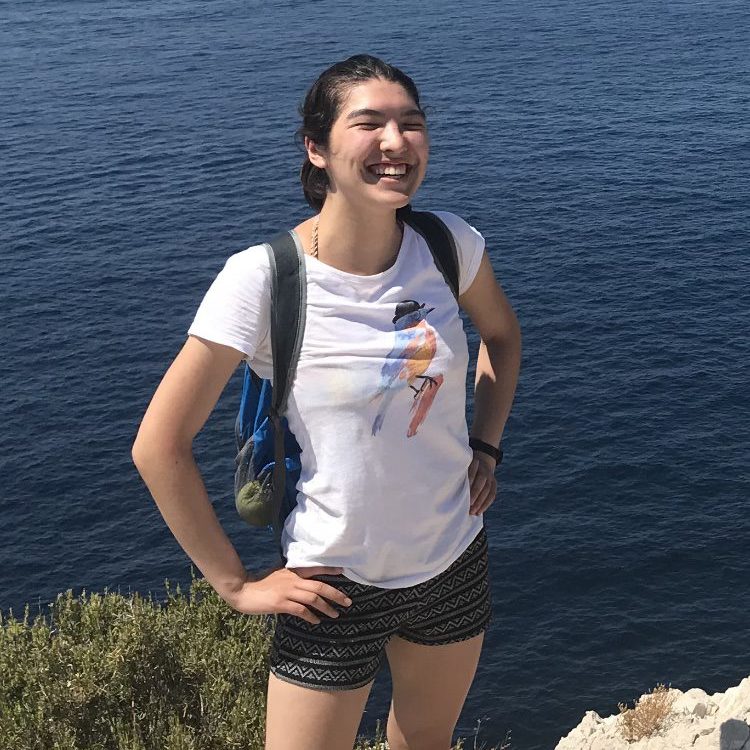
Mallory Kastner - Guest Student, Marine Chemistry & Geochemistry
I've been gradually transitioning to a low-carbon diet by setting incremental goals for myself, and now mainly cook vegetarian meals. I first phased out red meat, then reduced the frequency with which I ate other meats, dairy, and seafood. I didn't find it feasible to go vegetarian or vegan overnight but have found these smaller steps in my consumer choices satisfying and achievable, while still striving for delicious meals!

Mike Weir - Marine Resource Economist, Marine Policy Center
Ask where and how your seafood was caught and purchase seasonal seafood that is responsibly harvested by local commercial fishers. Ask your local fishmonger for recommendations or follow regionally-focused sustainable seafood guides, like the one published by the Monterey Bay Aquarium Seafood Watch program. These efforts can signal to seafood dealers and harvesters that consumers desire more environmentally-friendly seafood and can incentivize them to adapt their harvesting practices.
